#arapaima gigas
Explore tagged Tumblr posts
Text




Arapaima (Arapaima gigas) skin detail
Photos by Pete Oxford
#arapaima#arapaima gigas#fish#pirarucu#red#fish scales#colorful fish#animals#freshwater fish#nature#wildlife
798 notes
·
View notes
Text

Range: The Amazon River Basin
#poll#Class: Actinopterygii#Order: Osteoglossiformes#Family: Osteoglossidae#Genus: Arapaima#Arapaima Gigas
41 notes
·
View notes
Text
arapaima gigas
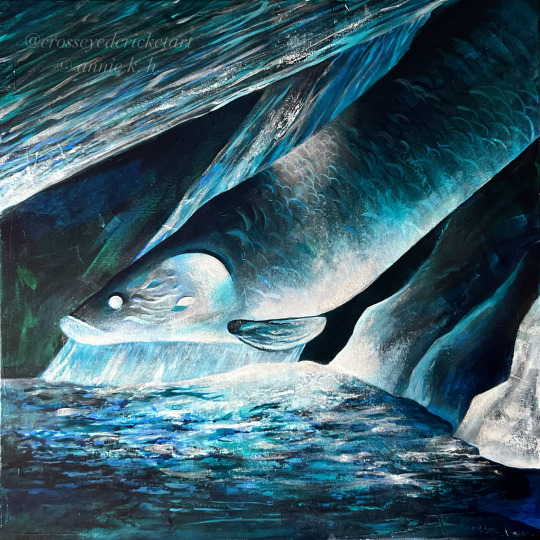
arapaima, river giant. 2023 / 24” x 24” / acrylic and glitter on canvas
arapaimas are some of the largest freshwater fish in the world. this is based off a photo I took in the Tennessee aquarium. this is a painting in inverse, meaning the white is shadow and the dark areas are light.
And with some horrible procreate skills, here’s what it “should look like” with the shadows being dark and the highlights being light:

i did my best don’t bully me I’m bad at digital editing
#art#painting#fish#fishblr#freshwater fish#Arapaima gigas#Arapaima#Freshwater#freshwater ecology#Fishes#fish art#aquatic life#Animals#marine animals#marine art#🖤 art tag
80 notes
·
View notes
Text
Fish of the Day
Today's fish of the day is the pirarucu!

The pirarucu, scientific name Arapaima gigas, is known for its impressive size. Getting as large as 3 meters, and about 10ft in length, the pirarucu is one of the largest freshwater fish in the world! Living in the Amazon river basin, this fish can be found in Peru, Brazil, and Guyana, with an invasive population within Bolivia, and some Eastern Asian countries. It is thought that this fish washed into Bolivia in the mid 1970's when a nearby Peruvian fish farm was flooded, and since then the pirarucu has wreaked havoc among the local fish populations, although the populations introduced into Asia have far less issues. Within their range, these fish prefer to live in slower moving waters or stagnant areas of lakes, and have a breeding season tied to the water amount in local waterways.
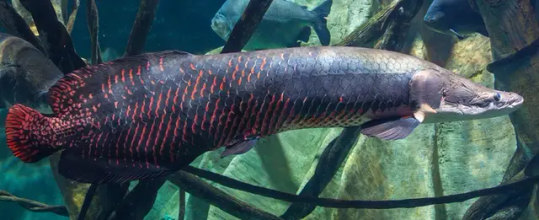
The diet of the pirarucu is made up primarily of fish along the basin bed, but a secondary large section of their diet is made up of small insects and other invertebrates at the surface of the water, along with crustaceans and water birds. These fish are air breathers, and must travel to the surface every 10-20 minutes to swallow in a mouthful of air, in a loud gasp, during which time they also hunt for prey. These fish are predated on in their natural habitat by crocodiles, boto, and humans, and they have adapted defenses, the pirarucu has large bony armor spanning the length of the body, similar to that of plecostomus fish.The lung structure that allows them to breath air is made out of a modified swim bladder that has adapted for easier gas exchange.

During the drought months of February-April, the pirarucu will begin spawning, laying its eggs. Then after this during the flooding months, these eggs will hatch. For the first 8 days of their lives these fish survive off of a gill structure, before going through a morphology change as the gills adapt to ion absorption rather than water intake. These babies are then protected by the male and female pirarucu within a built nest for up to three months, during which time they can get as large as a 1ft. By it's first year of life, these fish can get as large as 3ft, and reach sexual maturity by their fifth year. Then, they can live as long as 10-20 years. Although we don't know exactly when these fish would have started existing within their family, within Columbia, a 13 million year old fossil of pirarucu, or an ancestor of was found.

That's the pirarucu, everybody. Have a wonderful day!
#fish#fish of the day#fishblr#fishposting#aquatic biology#marine biology#freshwater#freshwater fish#animal facts#animal#animals#fishes#informative#education#aquatic#aquatic life#nature#river#ocean#pirarucu#Arapaima gigas#fish time#amazon river#amazon
24 notes
·
View notes
Text

Commission done for my friend Megan who streams video games here on twitch! Go check her out she's super fun, cool cunty and silly
#my art#commission#commission art#commission work#fish#fish art#arapaima gigas#if anyone comes in my dms and tells me everything about this fish that does not make it look like arapaima gigas im going to scream
27 notes
·
View notes
Video
youtube
Amazinfg Facts About Arapiaima , Vulnerable Ancient Fish Arapaima gigas
#youtube#Fish#Freshwaterfish#Arapaima#Arapaima gigas#Ancient Fish#Fossil Fish#Living Fossil Fish#Largest Freshwater Fish#Lokaranjan Aqua World Underwater Zone#Upturned Mouth#Obligate Air Breather#Male Fish Mouth Breeder
9 notes
·
View notes
Text



Met a celebrity at the aquarium the other day, she was nice enough to pose for a photo op
#I was so surprised I had no idea there would be an arapaima there!!!#arapaima#arapaima gigas#my face
3 notes
·
View notes
Text


Fibsh
#arapaima#arapaima gigas#giant freshwater fish#freshwater fish#giant fish#fish photography#photography#Spotify
6 notes
·
View notes
Text
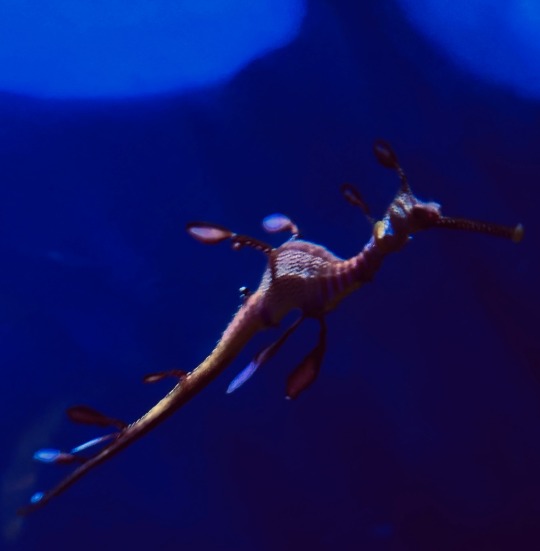
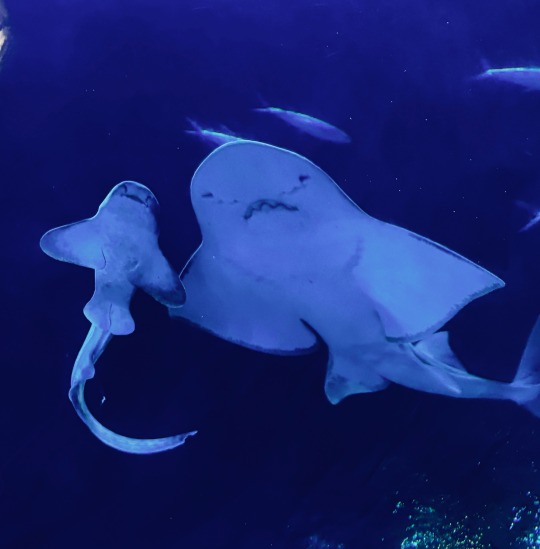
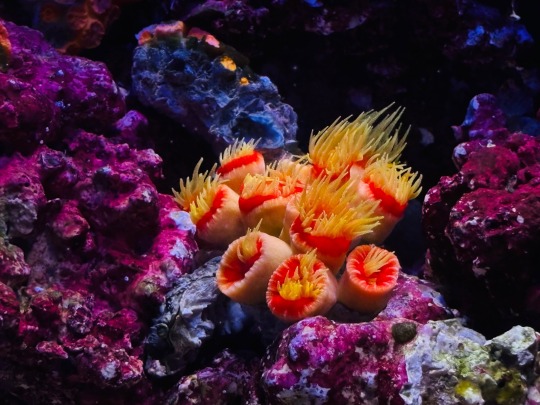
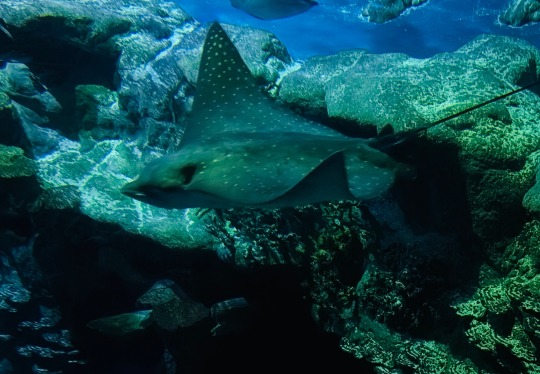
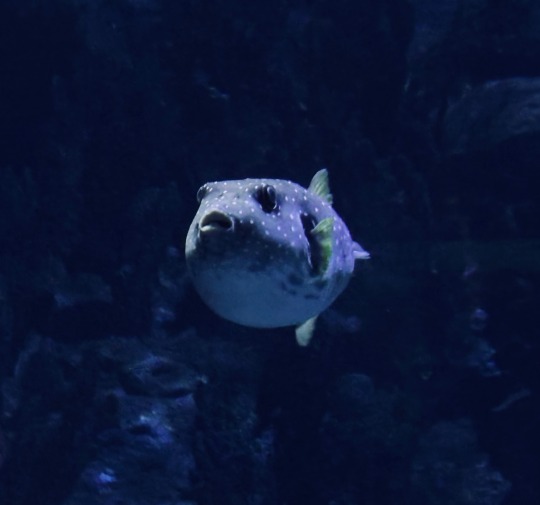
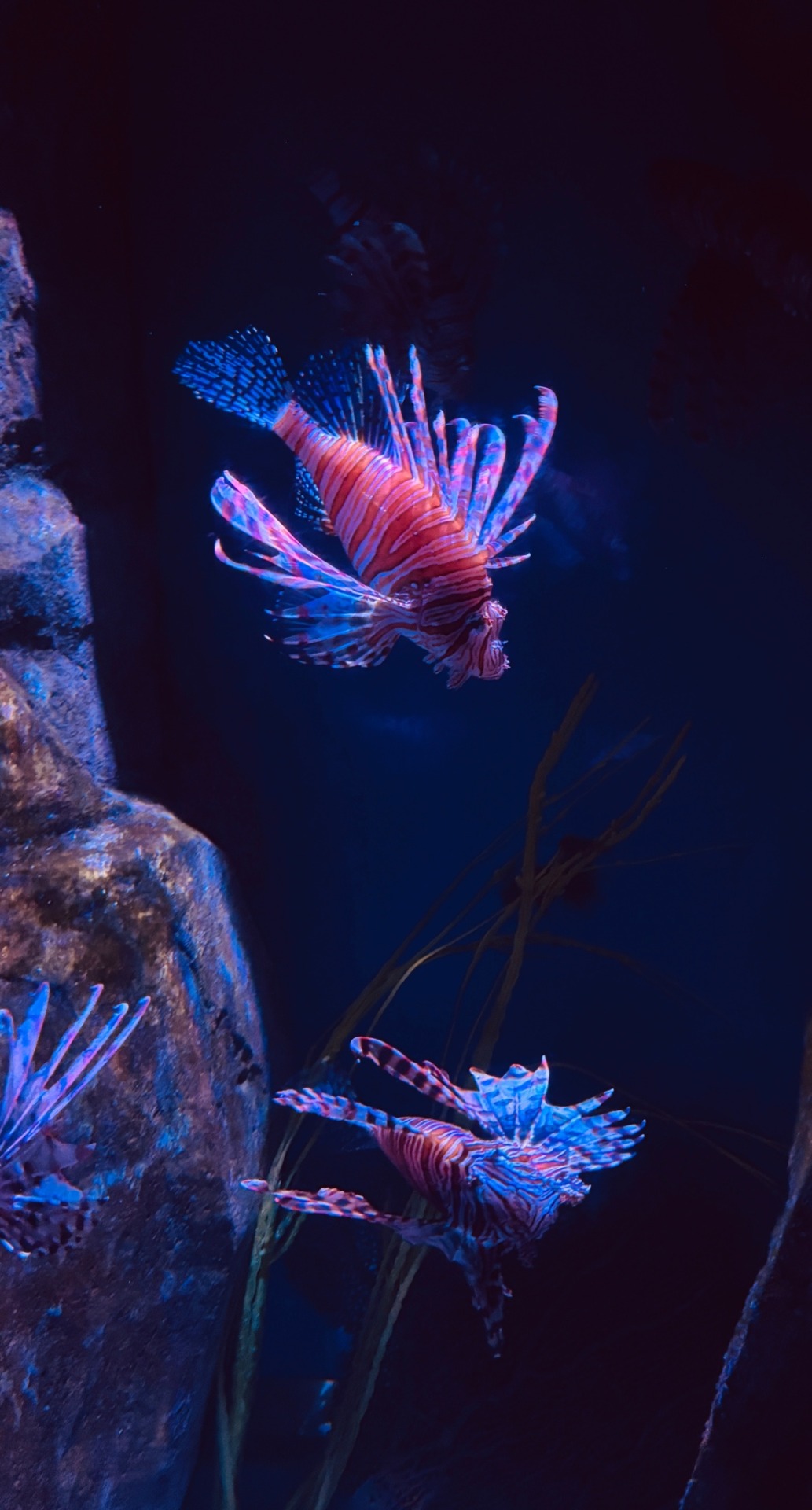
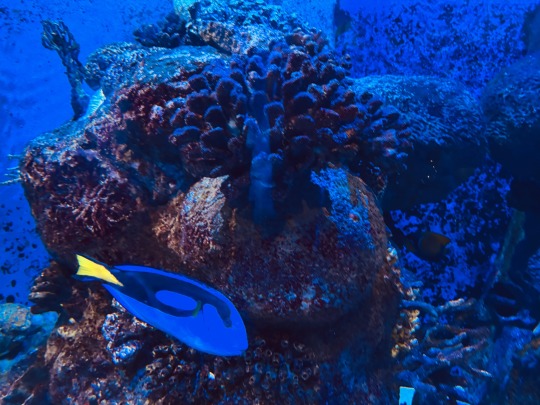
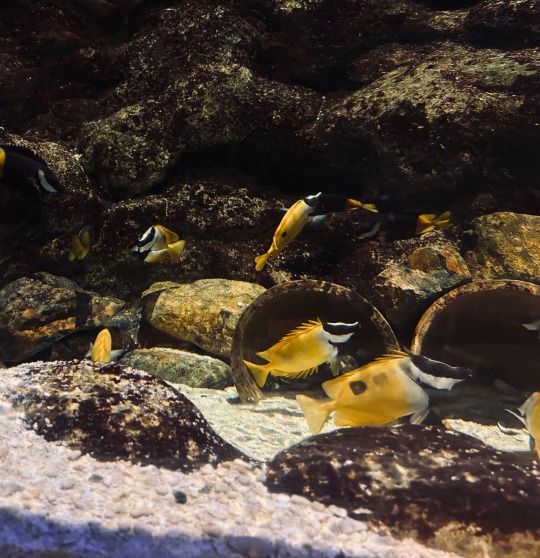
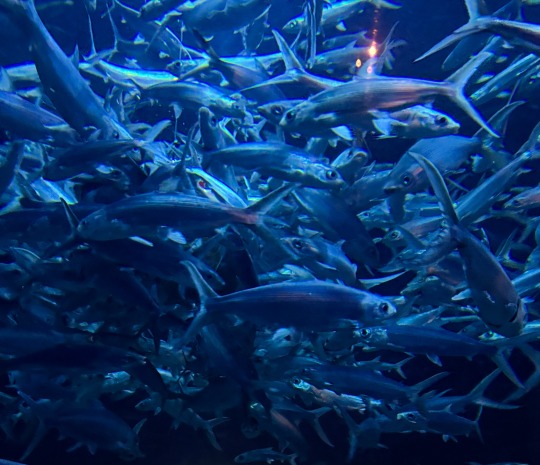
We spent so long and I took so many photos, I lost half of my battery from the camera app alone! Luckily, there was a portable charger station, and after a little over an hour I was ready to take even more pictures.
Some highlights:
Had to tell off a fellow aquarium-goer for using their flashlight when taking a picture of the very shy octopus.
It was my first time seeing a leafy sea dragon, and with such amazing colours too!
I really underestimated how overwhelming the swarm of milkfish would be; I stood there for ages, just staring at the chaos. They’re shinier than I’d assumed!
Groupers are very funny fish. We paced in front of the big viewing wall for a while just laughing at them.
Taking pictures of penguins is a real pain! They move so fast underwater, pretty much all my pictures came out blurry.
In theory I knew walruses were big, but it didn’t really hit until their feeding time… kudos to the aquarium workers, because I would’ve been very scared.
Very playful seals! They look like blimps (my friend) or hydrogen bombs (me). One barrelled right at us upside-down, and swerved away only at the last second.
Nurse shark dogpiles are adorable! Other sharks also snuck into the cuddle session.
I witnessed a brutal fight between the zebra angelfish.
They weren’t kidding; that arapaima is giga! I swear that fish was longer than I am tall. It has a mesmerising grey-to-red gradient!
Oddly enough, I didn’t see any gar.
The trip went above and beyond my hopes and expectations! I’m very grateful to my friends for patiently waiting for me to take photos of everything that moved. In return, I went on some really terrible rollercoasters with them after; not my thing.
Bonus:
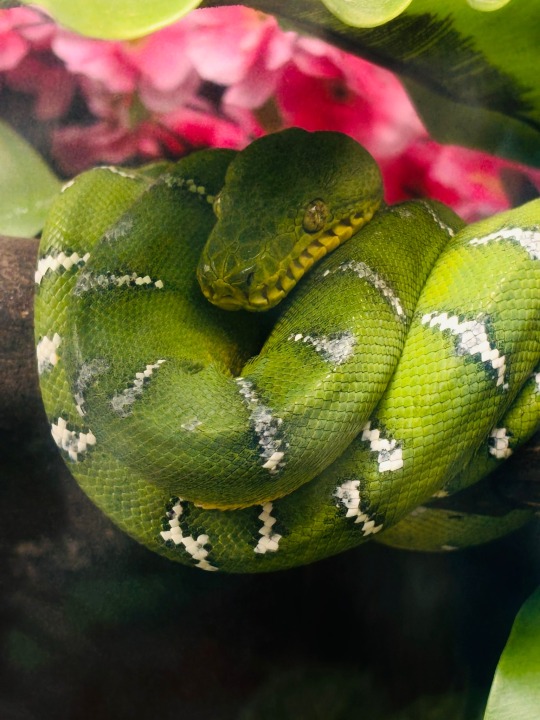
P.S. I don't think the alt-text I edited into the original post can be accessed in this reblog. Click on the link to see the edited original post for alt-text: Link.
I realise I’ve never posted the pictures from my visit to the aquarium with my friends! When I tell you guys I had a religious experience!!!
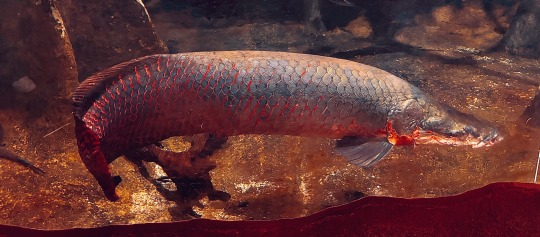
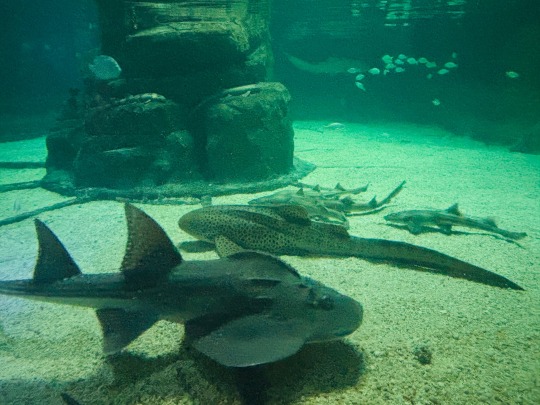

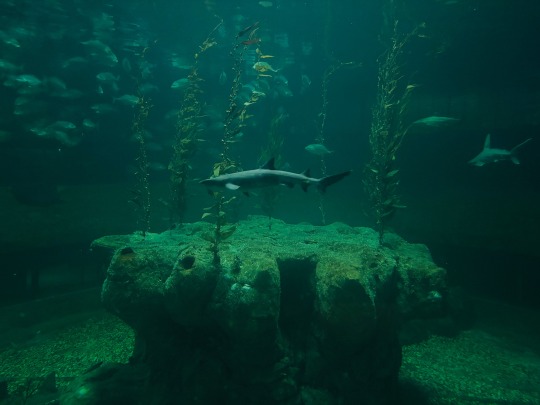
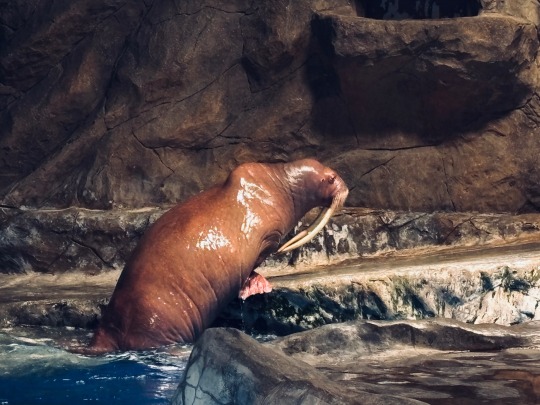
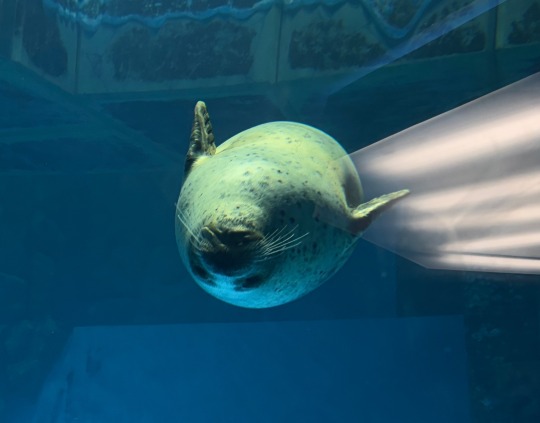
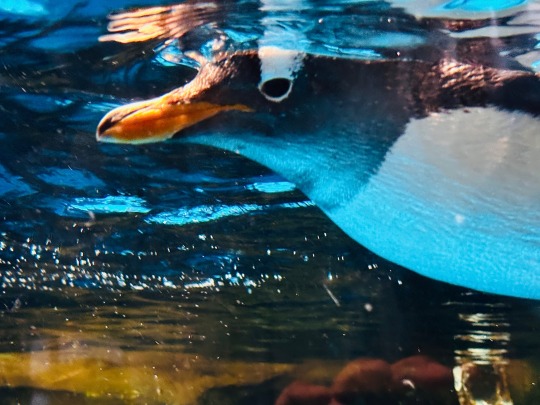
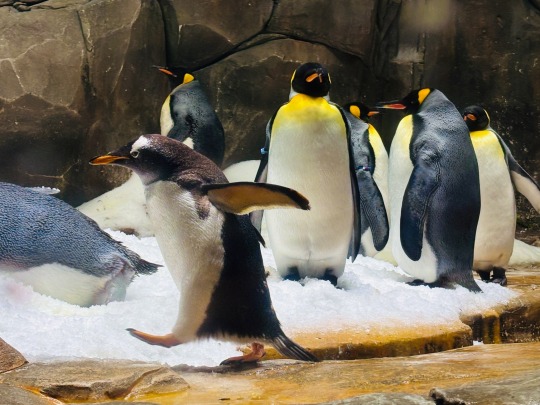
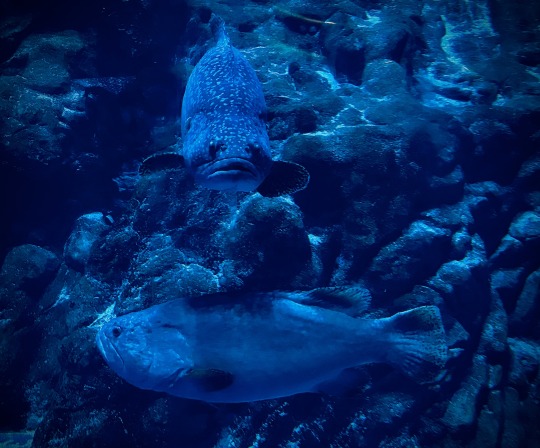
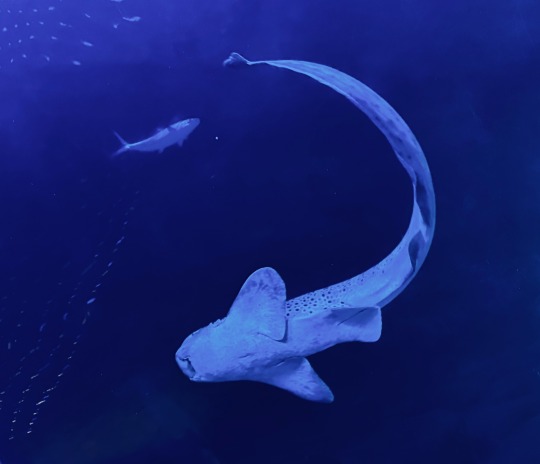
There’s a 10-image limit on Tumblr mobile, so I’ll reblog this post with the rest of the pictures!
#emerald tree boa#snake#fishposting#milkfish#zebra angelfish#seal#arapaima gigas#arapaima#nurse sharks#sharks#walrus#penguins#gentoo penguin#king penguin#grouper#zebra shark#white spotted puffer#pufferfish#lionfish#leafy sea dragon#seahorse#shark ray#stingray#spotted eagle ray#coral#blue tang#foxface rabbitfish#annie awkwardly articulates#id in alt text
3 notes
·
View notes
Text
Embrapa colabora com plano de manejo sustentável do pirarucu na Amazônia
A Embrapa Amapá participou de uma reunião com representantes do Ministério Público do Amapá (MP-AP) e diversas instituições para discutir medidas contra a pesca predatória do pirarucu (Arapaima gigas) na zona rural de Santana (AP). A iniciativa surgiu a partir de uma demanda da comunidade de São Sebastião do Igarapé do Lago, que busca proteger os estoques pesqueiros da região. Durante o encontro,…
#contra a pesca predatória#Embrapa Amapá#Ministério Público do Amapá#pirarucu (Arapaima gigas)#reunião#zona rural de Santana (AP)
0 notes
Text
i love my favorite fish the ARAPAIMA :fire: :fire: :fire:
1 note
·
View note
Photo

"Arapaima Monster fish Amazon River For EXTREME ANGLERS Pirarucu Paiche" by Olivera Pavlovic Naumovski on INPRNT
#art#print#illustration#artist#olivera pavlovic naumovski#fish#nature#south america#river#monster#animals#amazon#fishing#aquarium#fisherman#arapaima#angling#anglers#gigas#inprnt
0 notes
Note
Can I get a pretty, ancient fish. Or maybe just a pretty ancient fish?
...Maybe something like sounds like, "Cherry pie, ma?" IDK UH
*cracks knuckles* comin right up

You get a Giant Arapaima
Arapaima gigas
231 notes
·
View notes
Text
It's big, it's strong, its scaly, it's this week's Wet Beast Wednesday topic! An arapaima, also known as a pirarucu or paiche, is any of four species of fish in the genus Arapaima in the order of bony-tongued fish. There is som ongoing debate about the classification of the species, so to keep thing simple, I'm going to use the most common species names of Arapaima gigas (the type species and most well known, and the one with the most confusion about its classification), Arapaima agassizii, Arapaima leptosoma, and Arapaima mapae. Because A. gigas is the most well-studied of the species, unless I say otherwise you can assume everything I say in this post applies to it.

(image: an arapaima)
Arapaimas are bony fish that retain several primitive traits, causing them to sometimes be identified as "living fossils". They are most notable for their size, with A. gigas being a contender for the largest freshwater fish in the world. The maximum recorded size for one was 3.7 meters (10 ft) and 200 kg (400 lbs), but most get to around 2 meters (6.6 ft) long and 200 kg (440 lbs). That average length is decreasing as overfishing of the largest individuals is resulting in a selective pressure for smaller sizes. In addition to their size, they are extremely strong and can move fast if needed. Arapaima are fully capable of leaping out of the water if disturbed or they feel their current pond in unsuitable. Because of their strength, specimens in captivity must be handled with care as they can easy break bones if they slap someone. They live in rivers and lakes in South America, where they are often the top predators.
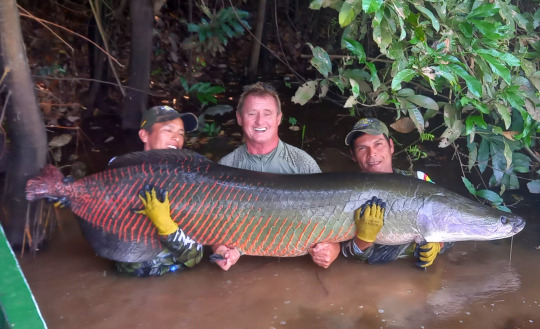
(image: several anglers with an arapaima)
Arapaimas are obligate air-breathers and will drown if they can't get to the surface to breathe. This is accomplished with a specialized swim bladder. The swim bladder is filled with highly vascularized tissue, letting it act like a lung. This pseudo-lung opens into the mouth using a modified gill arch known as the labyrinth organ. Arapaima gills are too small to sustain them, but they can supplement their oxygen intake with the gills. Juveniles are born exclusively using their gills and transition into air-breathers shortly after hatching. Arapaimas can survive up to a full day out of the water. They typically surface to gulp in air every 15-20 minutes. Breathing makes a loud gulping sound that anglers use to target them.
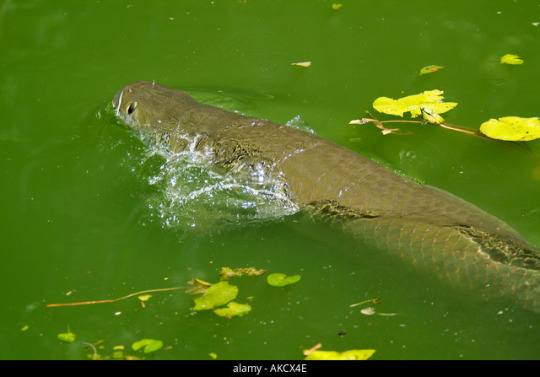
(image: an arapaima at the surface)
Because of their ability to breathe air, arapaimas are top predators in low-oxygen environments. Non-air breathing fish are forced to slow down in water with low levels of dissolved oxygen as they can't get enough oxygen through their gills. Since Arapaimas breathe air, they can easily chase down lethargic smaller fish. They are especially potent predators during the low season, when water levels lower. A combination of rotting vegetation reducing oxygen levels and ponds getting cut off from rivers and losing a supply of oxygen lets the arapaima reign supreme. Arapaimas are primarily predators that feed on smaller fish, though they will hunt other types of animals and eat fruits and seeds. Even land animals aren't safe as arapaimas have been known to launch themselves out of the water to catch animals near the shore. A combination of sharp teeth and their bony tongues are used to debilitate prey.
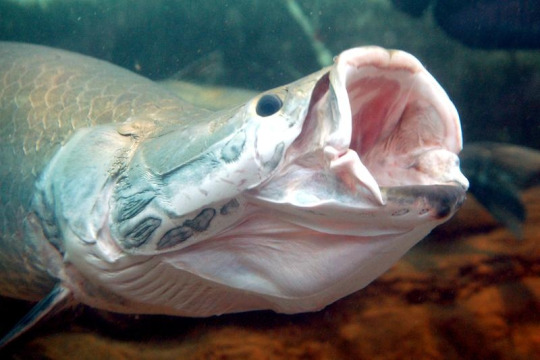
(image: an arapaima with its mouth open)
Not content with powerleveling their attack stat, arapaimas also have excellent defense. Their scales have been compared to bullet proof vests. Each has a hard, mineralized outer layer over multiple layers of collagen fibers. These layers are all oriented at an angle to each other to provide extra strength. This orientation of layers is called a Bouligand-type arrangement and is similar to how plywood is assembled. The harder outer layers and flexible inner layers work together to allow for both strength and flexibility. These scales help provide protection form large predators such as caiman and small threats like biting piranha. They also like provide protection from other arapaima, as the fish are aggressive and will fight each other.

(image: a diagram showing the composition of arapaima scales. source)
You probably wouldn't expect a swimming tank of an animal to be a good parent, but you'd be wrong. Arapaimas work together in mated pairs to build nests for their eggs, then cooperate to guard the nest. Once the eggs hatch, the male will practice mouth brooding, keeping his young safe in his mouth. The female will also help by patrolling the area around the male to ward off predators. They secrete pheromones from their heads to ensure the young don't swim too far away. Eggs are laid either in in the low season or as water levels are starting to rise, ensuring that the young become independent during the high season.
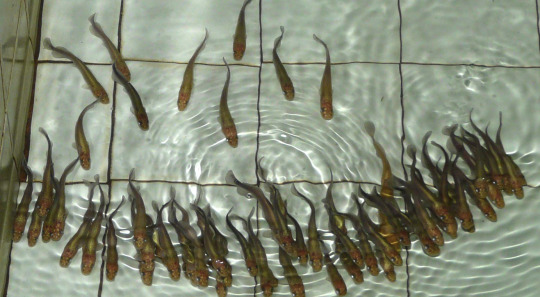
(Image: baby arapaimas)
Arapaima are classified as "data deficient" by the IUCN. This means there isn't enough data to properly assess their conservation needs. They are known to be threatened by overfishing. Arapaima make up a large part of the diet of many South American populations. Habitat loss and pollution are also believed to threaten them. They have been introduced to many areas out of their native range and are an invasive species in placed like Florida, Malaysia, and India.
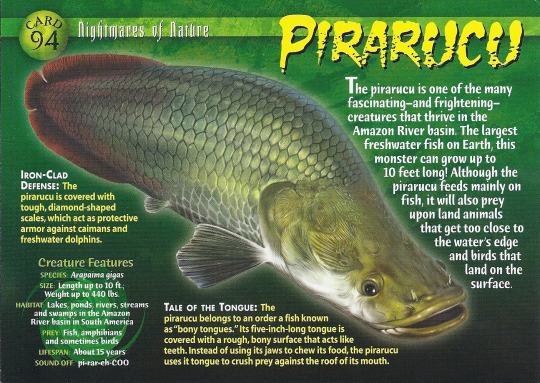
Does anyone else remember these cards? (image: the arapaima card from Weird n' Wild Creatures)
#wet beast wednesday#fishblr#fish#biology#zoology#ecology#animals#aquatic biology#animal facts#absolute unit#arapaima#pirarucu#paiche
1K notes
·
View notes
Note
DL moon- what type of scales do you have in your beast form i imagine shark or arapaima gigas (an amazon fish known to have the toughest scales that can deflect a piranhas bite a fish with the strongest jaws) or something that is close to being bulletproof?
Something like the arapaima has, but smaller scales and way more smoother. Parts of my scales are more like rays have, and my softer part like belly, inside of my arm and such are like shark skin.
He's a multi sushi
Well, let's talk about your beast then!
Nnnope.
26 notes
·
View notes